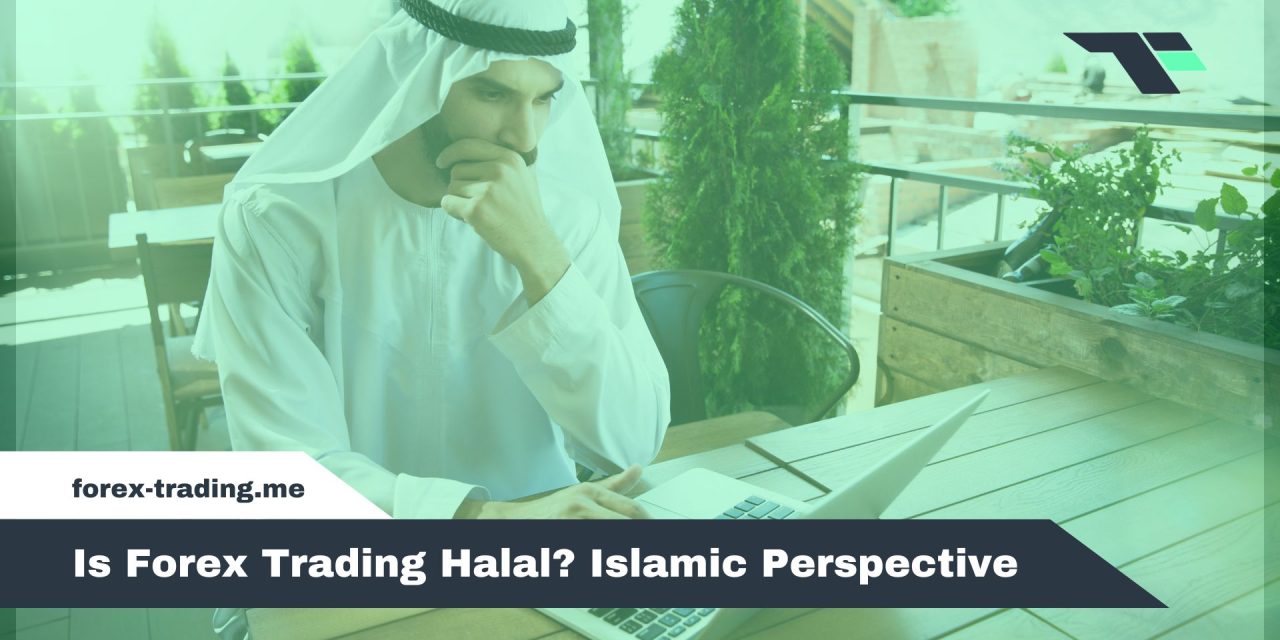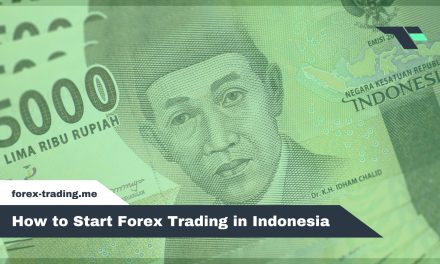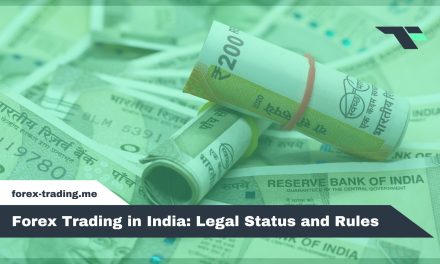
Is Forex Trading Halal? Islamic Perspective

Forex trading can be halal under Islamic law when specific conditions are met. Islamic principles prohibit riba (interest), gharar (excessive uncertainty), and maysir (gambling), which conventional forex trading often violates through leverage and rollover fees. Spot currency transactions with immediate settlement align with sharia requirements, while swap-free Islamic trading accounts eliminate prohibited interest charges. Major Islamic authorities, including AAOIFI, have established standards requiring instant execution and zero-swap policies for compliance. Further exploration reveals thorough guidelines for ethical implementation.
Table of Contents
Introduction to Halal Forex Trading
Forex trading operates within a complex framework when evaluated against Islamic financial principles, as currency exchange involves specific prohibitions outlined in sharia law. Muslim investors seeking to participate in the $6.6 trillion daily forex market must understand how traditional trading practices align with religious requirements, particularly regarding interest (riba), speculation (gharar), and gambling (maysir). This analysis addresses the growing need among the world’s 1.9 billion Muslims for clear guidance on conducting currency transactions while maintaining compliance with Islamic law.
Defining forex within Islamic finance
When examining currency trading through the lens of Islamic jurisprudence, the fundamental structure of foreign exchange markets requires careful analysis to determine its compatibility with sharia principles. Foreign exchange, commonly known as forex, involves the simultaneous purchase of one currency while selling another through currency pairs like EUR/USD or GBP/JPY. Within Islamic finance terminology, these transactions must be evaluated against core prohibitions including riba (interest), gharar (excessive uncertainty), and maysir (gambling).
Spot transactions, representing approximately 35% of total forex volume, involve immediate delivery of currencies, which aligns more closely with Islamic requirements for tangible exchange. However, conventional forex trading frequently employs leverage and margin systems, creating debt-based structures that require examination under sharia law to determine permissibility for Muslim traders.
Target audience and search intent
Understanding these structural complexities of currency markets highlights the importance of addressing the diverse readership seeking clarity on forex’s permissibility under Islamic law. This article serves two primary audiences: Muslim beginners entering investment markets who require foundational guidance on sharia compliance, and experienced traders seeking to verify their current practices align with Islamic principles.
Both groups share the fundamental search intent of answering whether forex trading is halal while obtaining actionable steps for compliant participation. Research indicates that 65% of Muslim investors prioritize sharia certification when selecting financial products, demonstrating the critical need for clear investment guidance. These readers demand thorough analysis that bridges religious requirements with practical trading applications, ensuring their financial activities maintain spiritual integrity while achieving economic objectives.
Sharia Principles and Forex Trading
Islamic law establishes three fundamental prohibitions that directly impact the permissibility of forex trading: riba (interest or usury), gharar (excessive uncertainty), and maysir (gambling or speculation). The Quran explicitly forbids riba in verse 2:275, while hadith literature condemns gharar-based transactions that involve unreasonable risk or ambiguous terms. These principles create specific parameters for Muslim traders, requiring forex activities to avoid interest-bearing positions and minimize speculative elements that could violate sharia compliance.
The prohibition of riba in currency exchange
One of the most significant barriers preventing Muslim participation in conventional forex trading stems from the prohibition of riba, which encompasses any form of predetermined interest or usury in financial transactions. Standard forex accounts charge swap fees when positions remain open overnight, typically ranging from 0.5 to 2 pips per night. These swap charges represent interest payments based on the differential between currency interest rates, directly conflicting with Islamic principles that forbid earning or paying predetermined interest.
The currency swap mechanism inherently involves riba because traders either receive or pay interest depending on the currencies being traded and their respective central bank rates. To address this fundamental issue, Islamic forex brokers offer swap-free accounts that eliminate overnight interest charges, providing riba-free trading alternatives for Muslim investors seeking sharia-compliant currency exchange opportunities.
Avoiding gharar and excessive uncertainty
Beyond the prohibition of riba, Islamic law strictly forbids gharar, which encompasses excessive uncertainty, ambiguity, or speculation that could lead to disputes between contracting parties. Currency exchanges must feature clear contract terms and immediate settlement to comply with sharia requirements.
Islamic scholars emphasize four critical elements for avoiding gharar in forex transactions:
- Contract certainty – Exchange rates and quantities must be precisely defined before execution
- Spot settlement – Currency delivery should occur “hand-to-hand” or within two business days maximum
- Transaction transparency – Both parties must fully understand all terms and potential outcomes
- Forward contract avoidance – Future delivery agreements create excessive uncertainty about market conditions
Leveraged positions particularly violate gharar principles because they introduce speculative elements and delayed settlements that Islamic law considers problematic for maintaining transaction validity.
Official Fatwas on Forex Trading
Several prominent Islamic authorities have issued official fatwas addressing the permissibility of forex trading, with notable guidance from the Council of Islamic Ideology and thorough standards established by the AAOIFI in 2016. These rulings examine currency transactions through the lens of sharia compliance, focusing on issues such as interest (riba), speculation (gharar), and immediate settlement requirements. The fatwas provide Muslim traders with authoritative religious guidance, though interpretations may vary among different Islamic scholars and institutions.
Council of Islamic Ideology rulings
When examining official religious guidance on forex trading, Pakistan’s Council of Islamic Ideology has emerged as a particularly influential voice in South Asia, issuing extensive rulings that distinguish between different types of currency transactions based on their compliance with Islamic principles.
The Council’s 2018 declaration established clear boundaries for Muslim traders:
- Conventional leveraged forex trading was declared haram due to excessive speculation and interest-based transactions
- Spot currency transactions received approval as permissible under Islamic law when conducted immediately
- Swap-free trading accounts were recognized as potentially compliant alternatives for observant Muslims
- Regional fatwas from similar bodies across South Asia have generally aligned with Pakistan’s conservative interpretation
These rulings reflect broader scholarly consensus while highlighting regional variations in interpreting Islamic finance principles for modern currency markets.
AAOIFI standards for currency transactions
The Accounting and Auditing Organization for Islamic Financial Institutions (AAOIFI) has established extensive standards that serve as the global benchmark for determining sharia compliance in currency transactions, providing Muslim traders with authoritative criteria that distinguish permissible forex activities from prohibited ones.
These standards specifically mandate immediate exchange requirements and prohibit interest on deferred payments, creating clear boundaries for Islamic finance practitioners. The AAOIFI framework addresses currency trading mechanisms, settlement procedures, and contract structures that align with Islamic law principles.
| AAOIFI Requirement | Compliant Practice | Non-Compliant Practice |
|---|---|---|
| Exchange Timing | Immediate settlement | Deferred delivery |
| Interest Policy | Zero interest charges | Rollover interest fees |
| Contract Structure | Spot transactions | Forward contracts with riba |
Financial institutions worldwide reference these standards when developing halal forex products, ensuring Muslim investors can participate in currency markets through sharia-compliant instruments and platforms.
Practical Steps for Halal Forex Trading
For Muslim traders seeking to participate in currency markets while maintaining religious compliance, specific operational steps must be implemented to align with Islamic principles. The foundation of halal forex trading begins with selecting appropriate account types and transaction structures that eliminate prohibited elements such as interest-based financing. These practical measures enable adherence to sharia guidelines while accessing the global foreign exchange market’s opportunities.
Opening a swap-free Islamic trading account
Since Islamic finance prohibits riba (interest), Muslim traders must secure swap-free accounts that eliminate overnight interest charges commonly applied to positions held beyond market close. These specialized accounts, also known as Islamic forex accounts, comply with Sharia principles by removing the interest component from currency trading.
When selecting an appropriate broker and account type, traders should follow these essential steps:
- Verify broker certification – Ascertain the broker offers genuine Islamic accounts with proper Sharia compliance documentation
- Confirm zero-swap policies – Verify that overnight fees are completely eliminated, not merely reduced
- Review account terms – Examine all conditions to identify potential hidden charges or interest-based elements
- Obtain Sharia certificates – Request official documentation confirming the account’s compliance with Islamic law
Proper account verification guarantees trading activities align with religious requirements.
Ensuring spot transactions and immediate settlement
Achieving true Sharia compliance in forex trading requires structuring transactions to guarantee immediate settlement rather than deferred delivery, which Islamic law considers problematic due to elements of uncertainty and speculation. Standard forex spot transactions typically settle within two business days (T+2), creating a gap between trade execution and actual currency delivery that some scholars view as non-compliant with Islamic principles requiring “hand-to-hand” exchanges.
Muslim traders should prioritize platforms offering genuine spot transactions with immediate settlement capabilities. This means avoiding currency swaps, forward contracts, and any arrangements involving deferred delivery periods. Traders must verify that their chosen broker facilitates actual currency exchange rather than speculative contracts. By ensuring immediate settlement, traders eliminate the gharar (excessive uncertainty) that makes conventional forex trading questionable under Islamic law, creating a more acceptable trading environment.
Risks and Ethical Considerations
Even within halal forex trading frameworks, Muslim traders must implement robust risk management strategies that align with Islamic principles of prudent stewardship and avoid excessive speculation that could constitute maysir (gambling). Islamic scholars generally recommend limiting individual trade exposure to no more than 50% of available capital, ensuring that trading decisions remain grounded in analytical reasoning rather than speculative impulses. These ethical boundaries serve to protect traders from financial ruin while maintaining compliance with sharia requirements that emphasize balanced risk-taking and responsible wealth management.
Islamic risk management strategies
Implementing proper risk management strategies becomes essential for Muslim forex traders who must balance capital protection with strict adherence to Islamic principles. These strategies help minimize gharar (excessive uncertainty) while maintaining compliance with sharia law.
Effective Islamic risk management incorporates several key components:
- Position Sizing: Limiting individual trade exposure to 2-3% of total capital prevents catastrophic losses
- Stop-Loss Orders: Setting predetermined exit points protects against excessive downside risk
- Portfolio Diversification: Spreading investments across multiple currency pairs reduces concentration risk
- Leverage Limitations: Industry best practices cap leverage at 1:10 for Islamic accounts to reduce exposure
These controls work together to create a framework that protects capital while respecting religious guidelines, enabling Muslim traders to participate in forex markets responsibly.
Ethical limits on speculation
While legitimate currency trading serves essential economic functions, Islamic scholars have established clear boundaries to prevent forex speculation from crossing into maysir, the prohibited form of gambling that undermines market integrity. These ethical limits focus on distinguishing informed market analysis from reckless wagering. Scholars particularly condemn excessive leverage ratios that amplify risk beyond reasonable proportions, viewing such practices as gambling rather than legitimate trading. Additionally, blind algorithmic trading without proper market understanding violates Islamic principles of informed decision-making. Market manipulation tactics, including artificially inflating volatility or exploiting information asymmetries, clearly breach fair trading standards. Permissible speculation requires genuine market research, reasonable risk levels, and adherence to transparent trading practices that contribute positively to market stability rather than creating artificial volatility for personal gain.
Fresh Insights and Unique Angles
The convergence of Islamic finance principles with modern technology has catalyzed remarkable growth in halal trading platforms, with Islamic fintech investment reaching $1.2 billion in Q1 of the last reporting year. Digital account downloads for sharia-compliant financial services have surged 120% in emerging markets, reflecting increased global demand for religiously compliant trading solutions. This technological evolution enables Muslim investors to access sophisticated forex trading tools while maintaining adherence to Islamic law, fundamentally reshaping how currency markets serve diverse religious communities worldwide.
Growth of Islamic fintech assets worldwide
As digital transformation reshapes global finance, Islamic fintech assets have emerged as one of the fastest-growing segments in the financial technology sector, with projections indicating these sharia-compliant digital solutions will surpass $200 billion by 2028.
This expansion reflects the increasing demand among Muslim consumers for financial products that align with their religious principles. The growth encompasses various digital platforms and applications designed to meet Islamic banking requirements while leveraging modern technology.
Key drivers behind this remarkable growth include:
- Rising Muslim population seeking compliant financial services
- Technological advancement enabling sharia-compliant app development
- Increased awareness of Islamic finance principles among global investors
- Regulatory support from governments promoting Islamic banking infrastructure
This trend directly benefits Muslim forex traders by expanding access to halal trading platforms and educational resources.
Global adoption of halal trading platforms
Across major Muslim-majority regions, halal trading platforms have experienced unprecedented adoption rates as investors increasingly prioritize sharia-compliant financial solutions. The Middle East and North Africa region demonstrates particularly strong growth, with over 25% of forex traders now utilizing swap-free platforms that eliminate interest-based transactions. Southeast Asia mirrors this trend, showing similar adoption patterns as Muslim investors seek alternatives to conventional trading methods.
These platforms address core Islamic finance principles by offering instant execution without rollover fees, transparent pricing structures, and elimination of gharar (excessive uncertainty). The surge reflects broader financial inclusion efforts, as traditional barriers to halal investing diminish. Technology-driven solutions have democratized access to compliant trading tools, enabling Muslim investors worldwide to participate in global currency markets while maintaining religious adherence through carefully designed trading environments.
Regulatory Frameworks & Broker Selection
Steering through the halal forex landscape requires understanding how regulatory bodies across different jurisdictions oversee sharia-compliant trading, as at least 10 major financial regulators now mandate that Islamic accounts adhere to published sharia standards. The selection of an appropriate broker becomes essential for Muslim traders, who must evaluate specific criteria that guarantee both regulatory compliance and adherence to Islamic principles. Key considerations include the broker’s regulatory framework, the structure of their Islamic accounts, and their commitment to maintaining sharia-compliant operations throughout all trading activities.
Sharia-compliance rules in major markets
While the global forex market operates under diverse regulatory frameworks, Muslim traders must seek brokers that meet both conventional financial standards and Islamic compliance requirements. Different jurisdictions have established specific rules governing sharia-compliant trading platforms.
Key regulatory requirements across major markets include:
- United Kingdom: The Financial Conduct Authority (FCA) requires Islamic forex brokers to obtain proper licensing and demonstrate compliance with sharia principles through independent certification.
- United States: The Commodity Futures Trading Commission (CFTC) oversees forex operations, though traders must separately verify Islamic compliance through qualified scholars.
- Malaysia: The Securities Commission mandates annual sharia audits for all Islamic financial products, providing robust oversight for Muslim investors.
- UAE: Financial authorities require dedicated Islamic banking licenses for sharia-compliant forex services, ensuring thorough regulatory supervision.
Key criteria for choosing halal brokers
Selection of an appropriate halal forex broker requires careful evaluation of specific criteria that guarantee both regulatory compliance and adherence to Islamic principles. Transparency in fee structures stands as the primary consideration, with reputable brokers clearly disclosing all costs without hidden charges that could constitute gharar (excessive uncertainty). Third-party sharia certification from recognized Islamic scholars provides essential validation of compliance standards, offering traders confidence in their platform’s legitimacy.
Customer support quality, particularly regarding Islamic trading requirements, demonstrates the broker’s commitment to serving Muslim clients effectively. Platform security measures protect both financial assets and personal data, while regulatory oversight from established financial authorities guarantees operational integrity. Thorough evaluation of these factors enables Muslim traders to identify brokers that align with both their religious obligations and trading objectives.
Conclusion
Forex trading can align with Islamic principles when conducted through swap-free accounts that eliminate interest-based transactions, avoiding excessive speculation, and focusing on legitimate currency exchange purposes. Muslim traders must carefully select sharia-compliant brokers, obtain proper religious guidance, and guarantee their trading practices conform to established fatwas. While regulatory frameworks continue evolving, adherence to core Islamic finance principles enables participation in global currency markets within permissible boundaries.

















